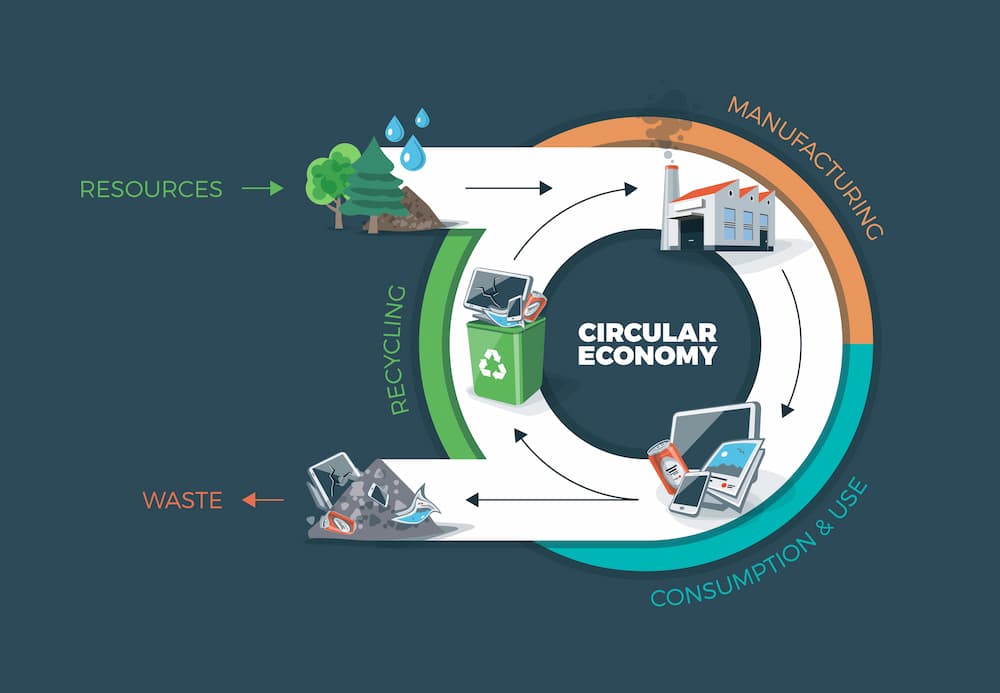
Universities Waste Management
CREATE YOUR ONLINE QUOTE NOW
Switch to Hills Waste Solutions in under 10 minutes
- 97% service reliability
- 4,000 businesses in our community
The importance of reducing waste and recycling in universities.
It’s estimated that universities generate over 250,000 tonnes of waste annually, which has an adverse impact on the environment. As such, more universities across the UK are tackling this problem through effective waste management and recycling solutions. This not only saves money but educates the community and enhances their reputation.
Locations served
- Amesbury
- Andover
- Bath
- Bristol
- Cirencester
- Chippenham
- Devizes
- Faringdon
- Frome
- Malmesbury
- Marlborough
- Newbury
- Portishead
- Salisbury
- Shaftesbury
- Swindon
- Trowbridge
- Tidworth
- Warminster
- Weston-Super-Mare
- Yate
Page overview
The types of waste produced
Waste impact on the environment
Recycling schemes and innovations
Benefits of waste reduction
- Paper: Excessive printing, photocopying, and paper use by students and staff alike contribute to significant paper waste. Many paper-based documents and mail also go unused contributing further to paper waste.
- Plastic waste: University campuses produce a lot of plastic waste, including water bottles, food packaging, straws, stirrers, plastic bags, and disposable cups and utensils. The University of Nottingham, for instance, discards over 1.5 million plastic bottles and disposable coffee cups annually. (The University of Nottingham).
- Cans and glass: Students generate waste from discarding aluminium cans and glass bottles and jars. Laboratories and art studios add to glass waste with items like beakers, test tubes, and project materials.
- Food: Cafeterias, dining halls, and self-catered kitchens contribute to food waste due to overproduction, over-ordering, and improper storage and handling. providing large portions to the students and staff may also contribute to waste if not all the food is consumed / eaten. (portion control)
- Electronic waste: Outdated computers, mobile phones, electronic devices, and batteries create electronic waste. Specialised universities may also produce hazardous waste from labs and medical facilities.
So what?
As large institutions with significant environmental impacts, universities have an important role in promoting sustainability and reducing waste. By implementing policies to reduce, reuse and recycle, universities can help reduce the amount of waste they generate and reduce their environmental impact.
How can universities mitigate their impact on the environment?
Education is key, simple right? Through courses, programmes, campaigns and events you can encourage sustainable practices to reduce your carbon footprint.
Universities can educate their staff and students on sustainability through courses, programmes, campaigns, and events, encouraging them to adopt sustainable practices. Here are some ways universities reduce their environmental impact:
Waste reduction and recycling
The problem
Correct separation of waste is a key factor in minimising environmental effects. When waste is not effectively segregated before collection, hazardous materials may end up in landfill, undermining the recycling efforts. It is vital that universities create waste management and recycling plans, to reduce their ecological footprint.
The solution
Universities can reduce the amount of campus waste effectively by introducing a zero-waste policy. Other great initiatives include recycle, reuse and composting programs that can ensure waste is diverted from landfills by encouraging everyone to participate.
Being more energy efficient
The problem
Universities consume large amounts of energy to power buildings, run laboratories, and operate IT infrastructure which significantly increases their carbon footprint. Inefficient energy use leads to higher operational costs and strains budgets. And, many university buildings are old and not designed for energy efficiency, further driving up heating, cooling, and lighting costs.
The solution
Universities should have an energy saving strategy to effectively manage their energy consumption requirements. By upgrading buildings with better insulation, lighting and investing in renewable energy you can reduce energy consumption.
Making sustainable choices
The problem
Unsustainable transportation and procurement practices at universities significantly impact the environment. Many students and staff use personal vehicles, contributing to higher carbon emissions and traffic congestion. International academic travel and the use of single-use items and non-eco-friendly goods further exacerbate the environmental impact.
The solution
Universities can mitigate these impacts by promoting sustainable transportation options such as cycling, walking, and public transit, and by providing bike parking and electric vehicle charging stations. They should prioritise sustainable procurement, including green cleaning products, recycled paper, and locally sourced food. These changes reduce the carbon footprint and set a positive example for the community.

The Green Impact Scheme
Green Impact is a UN award-winning programme that helps universities find their own route to become environmentally and socially sustainable. One initiative of the National Union of Students’ (NUS) sustainability programme, its flexible, freely available, 12-month programme guides each university through a process relevant to how they are organised, what they want to achieve, and their existing culture.

Circular economy thinking
Universities are also preparing graduates to use circular principles by training them on the Ellen MacArthur Foundation’s Circular Economy in Education programme. This programme currently offers resources and guidance for 37 institutions worldwide to embed thinking about the circular economy into how their universities operate and teach.
Better for the environment
Managing waste is an important topic for universities because it reduces their effect on the environment by reducing the consumption of natural resources and greenhouse gas whilst reducing waste sent to landfill.
Be more cost-effective
Waste minimisation and recycling programmes result in significant financial savings for universities. By reducing the amount of waste created and diverting it from landfill, universities reduce waste disposal fees and reduce the cost of replacing materials.
A more positive reputation
A reputation for sustainability and environmental responsibility can lend prestige to a university and bring about further benefits of this connection. An emphasis on this domain appeals to potential students and faculty who are eco-conscious and environmentally aware. It can also give a university a distinctive edge over competitors, enabling it to stand out from the crowd of similar institutions.
Educational opportunities
Reducing waste and recycling programs are educational. They inform students and staff about nature and sustainability problems and how to deal with nature conserving solutions.
